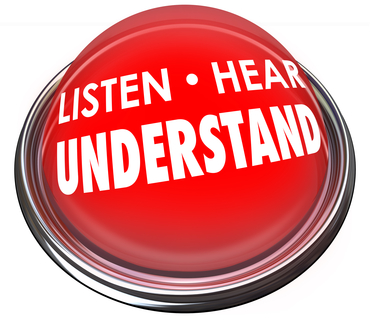Effective communication requires good listening skills. In order to have a successful relationship you need to be able to communicate in a way that makes your partner feel heard and known. When you actively listen to your partner you can gain a deeper understanding of what matters to them and who they are. By improving your listening skills, you can strengthen your couple connection and intimacy.
Listening
Listening is a skill that brings about a deeper level of understanding and a closer connection. It is an important component of effective communication. Listening is not a passive process. It requires you to pay attention and ask for clarification when necessary. Listening necessitates focusing on what is being said as well as how it is spoken. To effectively listen, you need to be engaged and aware of both verbal and non-verbal messages being sent. When you are really listening to your partner you can begin to develop a deeper understanding of who they are. This can improve your overall communication and deepen your intimacy.
1. Listen To Understand
Listening is about gaining a deep understanding of what is being said from your partner’s perspective. If you are busy thinking about what you are going to say, you are not effectively listening. Formulating a response takes your focus off of the speaker. This can cause you to miss information that could be important to your ability to understand what is being communicated. If you are listening to understand instead of listening to respond, your focus will be on the speaker the entire time they are talking. While you may not agree with your partner, at least you will understand them better.
2. Stay Focused
If you want to be a good listener, you need to give your undivided attention to your partner. To do this you will need to minimize distractions. Turn off the television, put down your phone and look at your partner. If you are distracted, not making eye contact, or doing something else, your partner will think you aren’t listening. When you are not focusing on your partner, it sends an indirect message that what they have to say is not that important to you. Instead, create a safe environment where your partner can feel heard, understood, and connected simply by focusing on them and what they are saying.
3. Pay Attention To Non-Verbal Cues
Words are important in communication, but they only convey a part of the message. In order to gain a clearer understanding of what is being communicated, you need to pay attention not only to what is being said, but how it is said. To be a more effective listener, you will want to notice non-verbal cues as well. Body language is another way to communicate. Pay attention to facial expressions, tone of voice, and mannerisms in order to be a better listener. If there is a discrepancy between what is said and how it is said, your partner may not be feeling safe.
4. Reflect Back What You Heard
A good way to let your partner know that you are listening is to reflect back what you hear them say. This reflection is most effective when you are able to share in your own words the meaning that they are trying to express. Reflecting back what you hear helps build trust. When you are able to reflect back what your partner says, they will know that you are paying attention and listening for context as well as content. This will help them feel heard and understood.
5. Empathize And Validate
Effective listening enables you to validate your partner’s feelings and empathize with their experience. Validating your partner’s emotions let’s your partner know that you care about their emotions and inner experience. Empathy helps you attune to their feelings through emotional understanding. When you empathize with your partner and validate their experience, you create a safe environment where they can openly share free of judgment and shame. This can increase your intimate connection.
6. Ask Open-Ended Questions
While it is not helpful to interrupt your partner or offer advice that wasn’t asked for, it can be helpful to ask open-ended questions. Open-ended questions invite the speaker to expand on what they are communicating. Whereas closed-ended questions often only require a one word answer, open-ended questions create an opportunity for further discussion. Instead of asking Are you upset? You could gain a deeper understanding by asking How are you feeling? This communicates to your partner that you are listening and are interested in hearing more in order to really understand.
7. Summarize Your Understanding
Summarizing what your partner said at the end of the conversation shows them that you were listening to understand them. This is a great way to let your partner know that you are paying attention to both content and context. If you missed anything, your partner can clarify what they actually meant. Your couple connection can deepen when your partner feels you are listening.
The next time you have a discussion with your partner, try to actively listen to them. If you struggle to communicate effectively as a couple, counseling can help. When your partner feels heard and understood, the quality of your relationship will improve.



